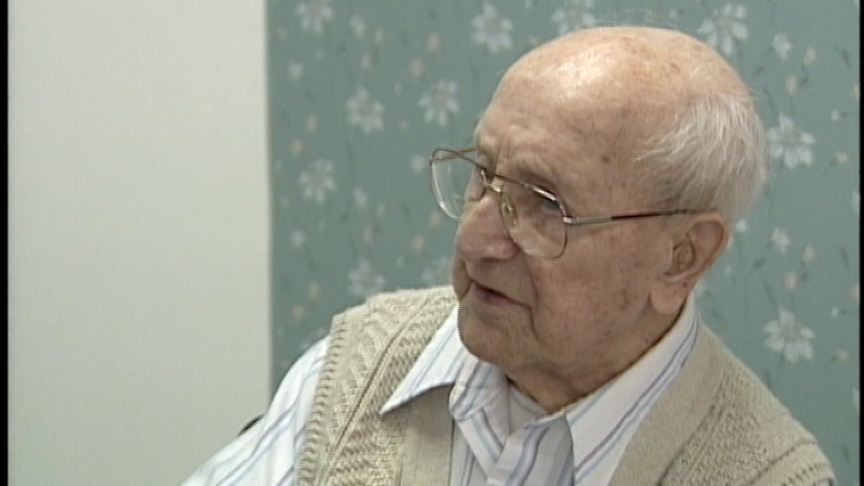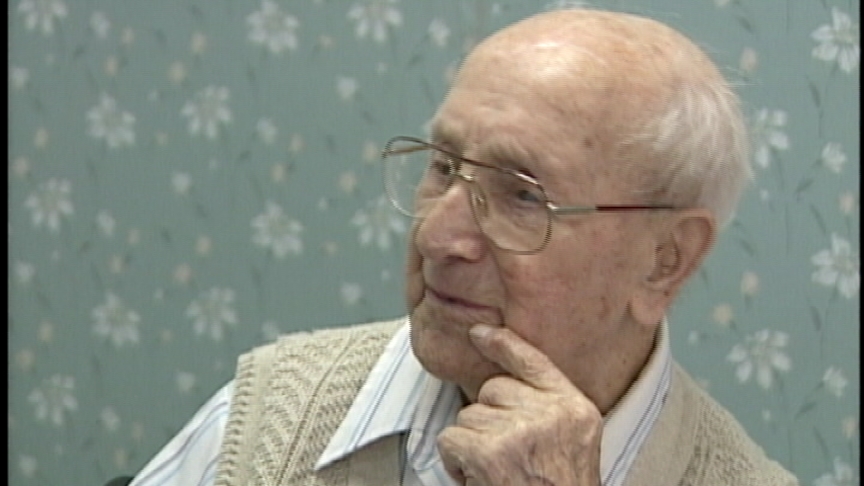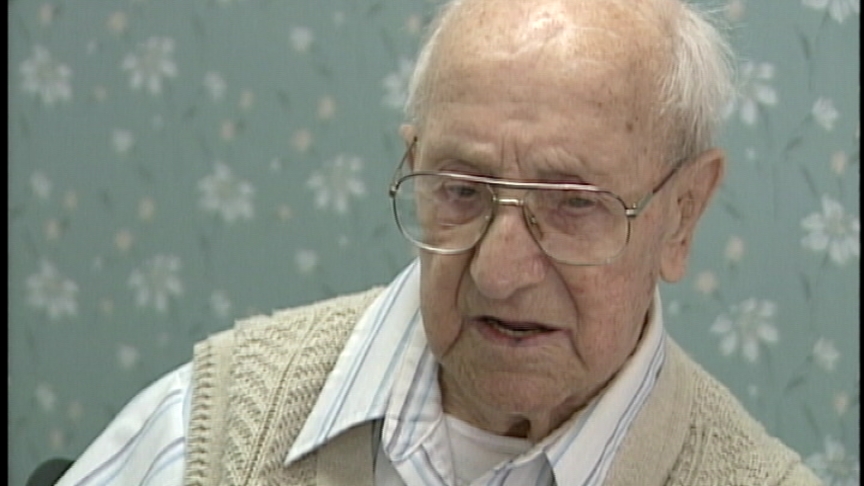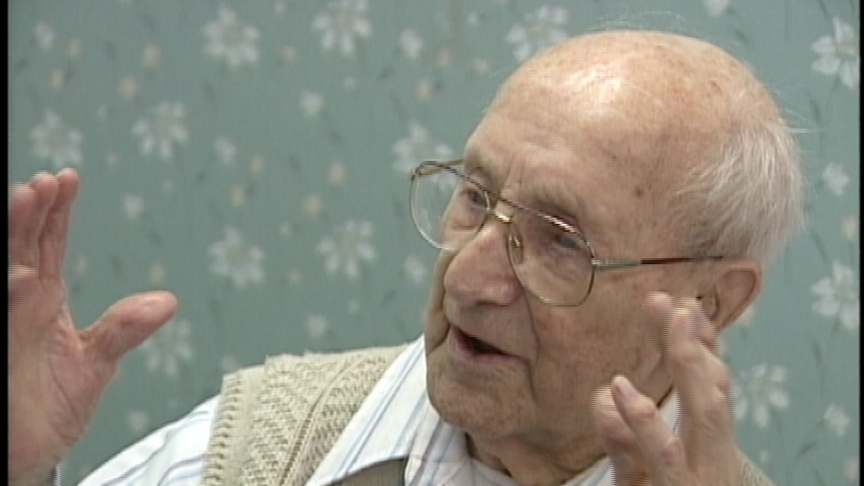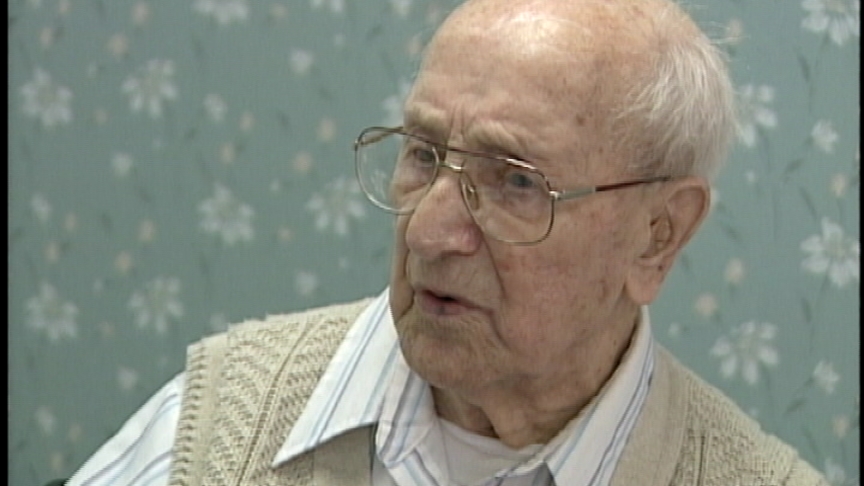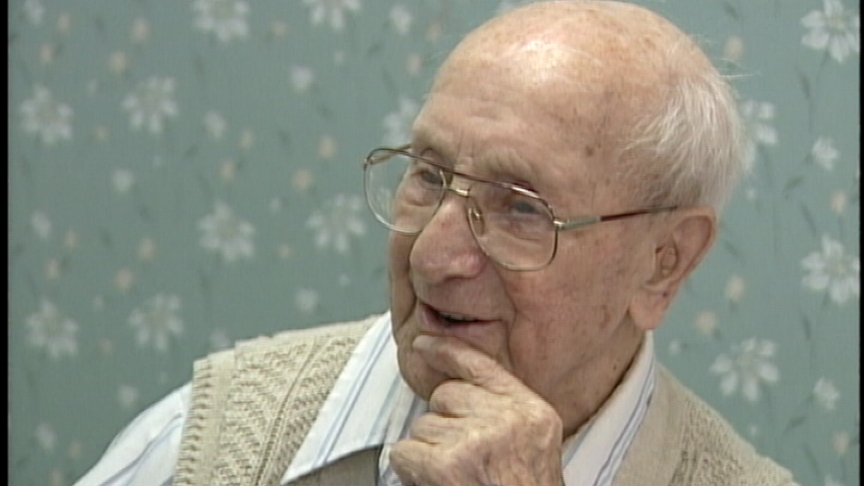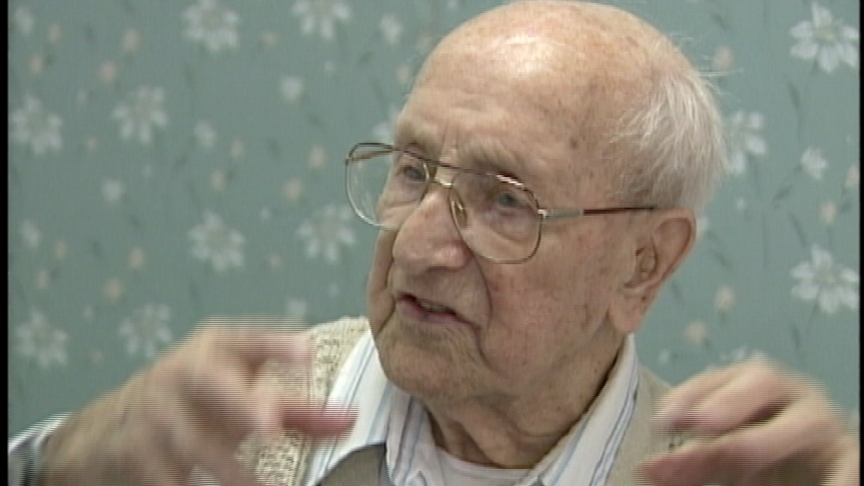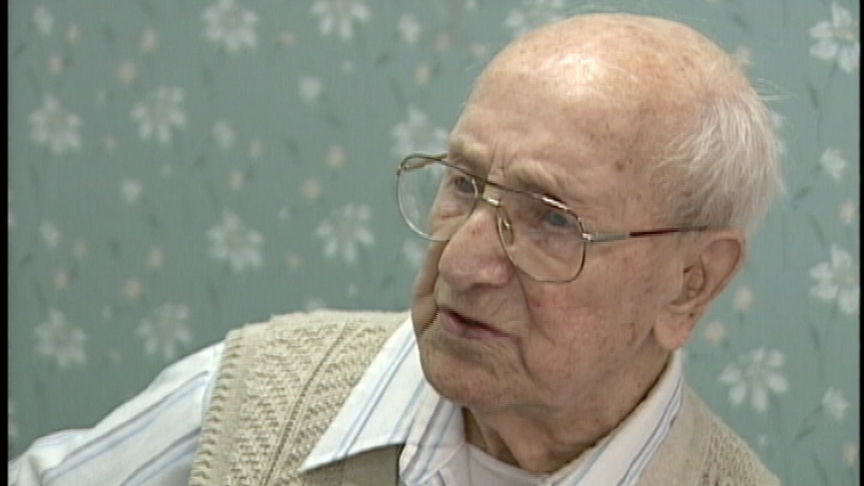Rest Area Shelled
Heroes Remember
Rest Area Shelled
Transcript
The middle of March right through until I
suppose about four months and
they'd give me four days off, five days off,
they'd let me out the line,
outside of that I was into everything.
I only got that one little...
Now, there was a bunch of shacks there.
I was in sleeping. First thing you know this
damn big shell come over head and
went down the other side of me and
“Whammo!” Of course, it woke me up and
I said God I was some lucky that didn't
hit the shed and it went in and around
the other side and there was fellows
was crawling out of that,
there was five or six dead in there.
The shell had just went over where I was
sleeping like that, down in the ground and
it exploded. When it got in there it
exploded onto three or four
people that had been sleeping.
There wasn't much left of them.
And this is the way,
this is the way this stuff was.
You never knew when you was going to
get one of them big shells from the front.
Description
Mr. McLeod describes being on rest leave behind the lines, and the camp being struck by German artillery. Several deaths occur because of the shelling.
Russell McLeod
Russell McLeod was born on October 9, 1899 in Liverpool, Nova Scotia. His father was a fisherman, and prior to his enlistment, they fished together. Mr. McLeod joined the 219th Battalion in 1916 and trained at Camp Aldershot, Nova Scotia. He was sent overseas that fall, and joined the 25th Battalion in France. He served during Canada's 'Last Hundred Days', seeing action at the Hindenburg Line, Cambrai and Mons. After the armistice, he served as a member of the Occupation Army in Germany.
Meta Data
- Medium:
- Video
- Owner:
- Veterans Affairs Canada
- Duration:
- 1:25
- Person Interviewed:
- Russell McLeod
- War, Conflict or Mission:
- First World War
- Branch:
- Army
- Occupation:
- Signaller
Related Videos
- Date modified:



